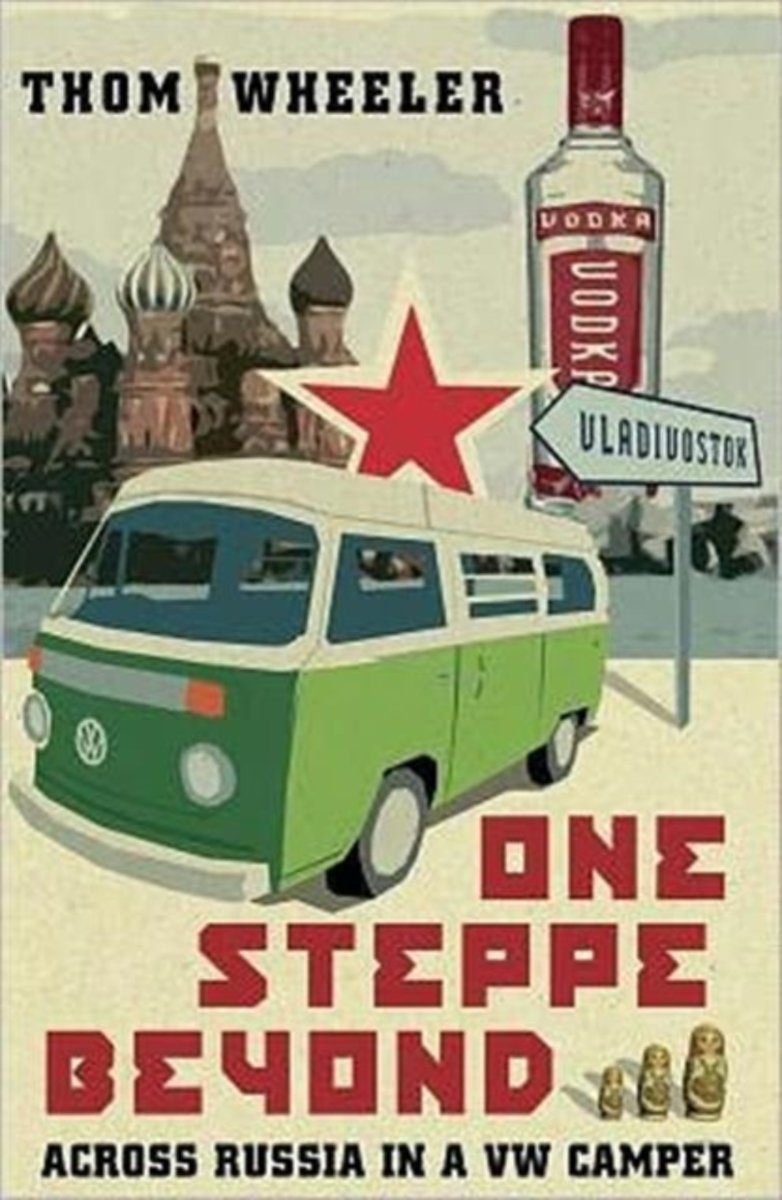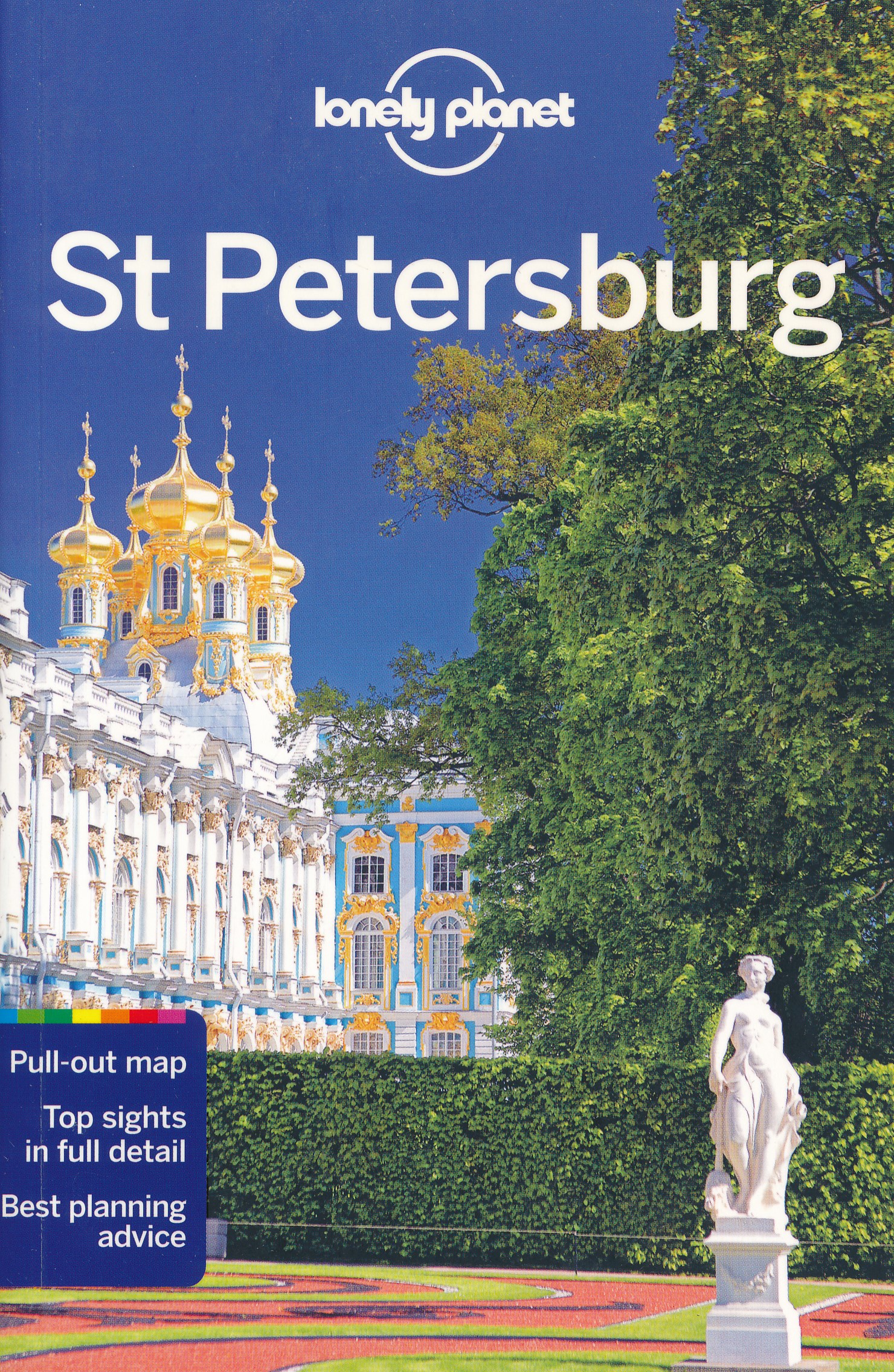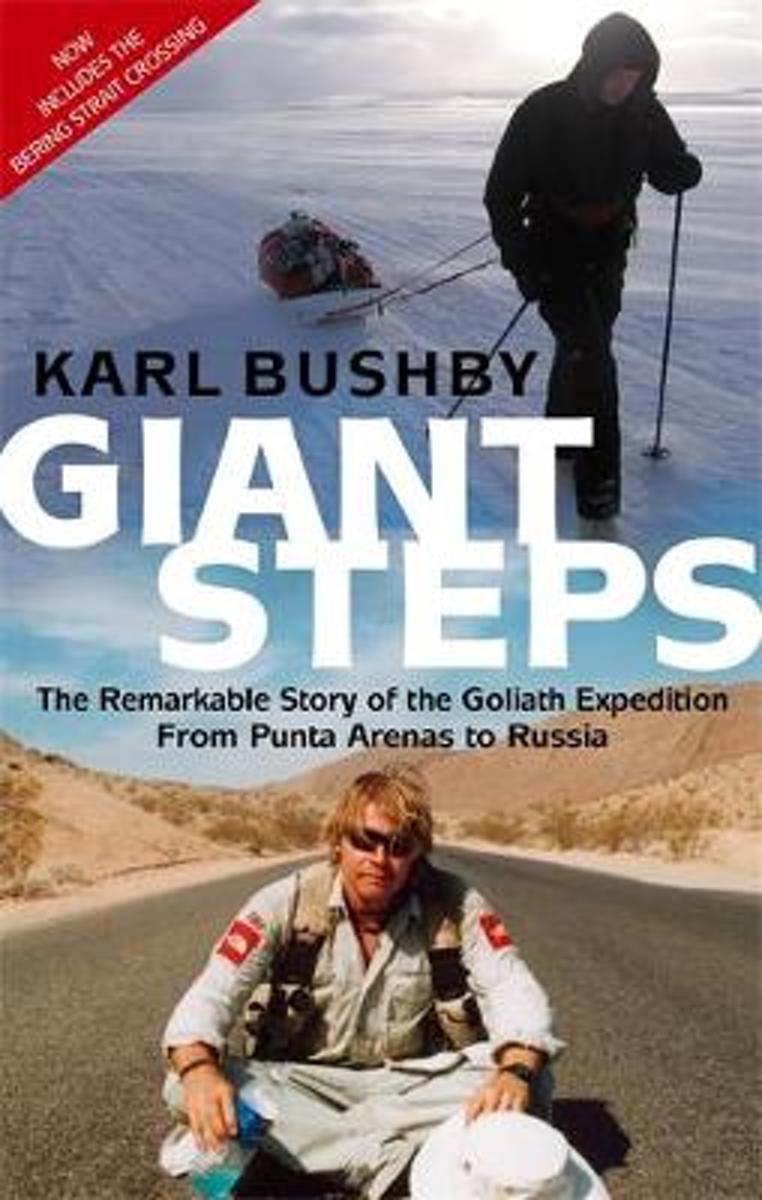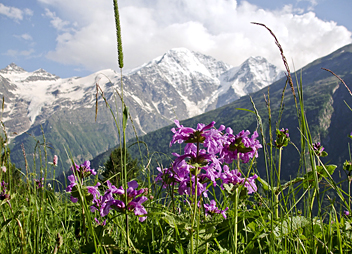Russie
Description
Imagine a vast land of seemingly endless plains and plateaus, stretching out for thousands of miles. The south being mostly open steppes, changing into an ever more densely forested landscape as you travel north, and eventually ending in tundra bordering on the northern coast. Impressive mountain ranges of the Caucasus run along Russia's southwestern border with Georgia, featuring Mt.Elbrus (5642m), highest mountain of Russia, and of Europe for that matter.
Further east are the mighty Ural mountains running from north to south across the country, marking the border between European and Asian Russia. Beyond are more plains until you reach the Siberian plateau in Russia's far east. To the south the Altai mountains rise up, followed by a whole series of less well-known but equally awesome mountain ranges from west to east, until you reach Lake Baikal, the world's deepest freshwater lake.
And this isn't all. Continue northeastwards from Lake Baikal to encounter still more mountain ranges with mysteriously ringing names like Synnagyn, Stanovoy, Verkhoyansk, Kolymsk, Cherskogo and Dzhugdzhur. Then at last, you will look across the Sea of Okhotsk, towards the Kamchatka Peninsula with its volcanoes and geysers, and south towards the island of Sakhalin and Primorski region.
Although the Russians themselves tend to be hunters rather than hikers, there are obviously great opportunities for long distance hiking in Russia. There are numerous trails in the Caucasus, Karelia, the Ural mountains, the Khibiny (northern Ural) mountains located north of the polar circle, the Altai mountains, Kamchatka, and in the Siberian taiga. Also there is the Great Baikal Trail planned to fully circumvent Lake Baikal. It is still under development, but over 500km is ready.
Russia's climate is decidedly continental. Spring and autumn are very brief, summers are very hot and winters extremely cold. However, be prepared for sudden weather changes and drops in temperature even in summertime. Of course climate in the polar regions is arctic: mild summers and freezing cold and dark winters.
Keep in mind that remote areas in Russia are true wilderness, and trails are generally not marked if visible at all. Reliable maps and documentation are hard to come by, non-existant or in Russian only. Mountain huts are an exception and very basic. Villages can be many days hiking apart, so you will need to carry compass, camping gear, clothes, food and sometimes water for several days. It can be risky to venture out on your own. It is not uncommon to hire a local guide. Ascending some of the higher mountains such as Mt.Elbrus may require a special permit. In short: hiking in Russia can be truly exploratory, and all the more adventurous.
Sentiers
Régions
Montagnes
Liens
Données
Rapports
Guides et cartes
Hébergement
Organisations
Voyagistes
GPS
Autre
Livres

United Kingdom
- Russia Birds
- A Folding Pocket Guide to Familiar Species Lire la suite

Netherlands
- One Steppe Beyond
- Traveling across the former Soviet Union is a challenge at the best of times?doing so in a dilapidated VW is just that much more of an adventureA chance job offer at a timber yard in Estonia gives Thom and his old pal Jo a taste for the unknown. So when Uncle Tony asks them to drive to Vladivostok for another job, they can t think of a good... Lire la suite
- Also available from:
- Bol.com, Belgium

Belgium
- One Steppe Beyond
- Traveling across the former Soviet Union is a challenge at the best of times?doing so in a dilapidated VW is just that much more of an adventureA chance job offer at a timber yard in Estonia gives Thom and his old pal Jo a taste for the unknown. So when Uncle Tony asks them to drive to Vladivostok for another job, they can t think of a good... Lire la suite

Netherlands
2018
- Reisgids Belarus - Wit Rusland | Bradt Travel Guides
- Voor vele landen net zo goed, zo niet beter dan de Planet. Beduidend soberder uitgevoerd, maar ook met veel informatie voor backpackers en met veel kaartmateriaal. Een aanrader! This new, thoroughly updated edition of Bradt's Belarus remains the only full-blown standalone guide to the most westerly of the constituent republics that formed the... Lire la suite

Netherlands
2017
- Reisgids Moscow St. Petersburg & the Golden Ring (Moskou Sint Petersburg en de gouden ring) | Odyssey
- As the symbolic heart of Russia, Moscow, with its 870th anniversary in 2017, is the centre of politics and culture, and has enjoyed a renaissance as one of the world's great cities. The capital's streets now buzz 24-hours a day, and offer a wealth of historic sites, plush new hotels, internationally-stocked shops and thousands of eating... Lire la suite

Netherlands
2018
- Reisgids City Guide St. Petersburg | Lonely Planet
- De perfecte reisgids voor zowel de georganiseerde als de zelfstandige reiziger. Naast een algemene inleiding van de stad vol met praktische informatie over hoe je er het beste kunt reizen: slapen, eten, vervoer, excursies ... alles kun je er in vinden. The sheer grandeur and history of Russia’s imperial capital never fail to amaze, but this is... Lire la suite

Netherlands
- Giant Steps
- In Punta Arenas, Chile, in November 1998, Karl Bushby set out on one of the most remarkable journeys of modern times. His plan is as simple as it is extraordinary: to walk up the Americas, across the Bering Strait, through Asia, Russia and Europe, back through the Channel Tunnel and returning to Britain in 2011. It is a journey of remarkable... Lire la suite
- Also available from:
- Bol.com, Belgium

Belgium
- Giant Steps
- In Punta Arenas, Chile, in November 1998, Karl Bushby set out on one of the most remarkable journeys of modern times. His plan is as simple as it is extraordinary: to walk up the Americas, across the Bering Strait, through Asia, Russia and Europe, back through the Channel Tunnel and returning to Britain in 2011. It is a journey of remarkable... Lire la suite

Netherlands
2018
- Reisgids Russia - Rusland | Lonely Planet
- De perfecte reisgids voor zowel de georganiseerde als de zelfstandige reiziger. Naast een algemene inleiding van het land / streek vol met praktische informatie over hoe je er het beste kunt reizen: slapen, eten, vervoer, excursies ... alles kun je er in vinden. Lonely Planet Russia is your passport to the most relevant, up-to-date advice on... Lire la suite

Netherlands
- Finding Mojo
- What does it take to finally let go of things that just aren t working in your life? The suffering of a broken heart? Losing a job? Or maybe the painful disintegration of a long-standing friendship?It is the cruel fusion of all these things and more that leads Natalie to believe the life she s living belongs to somebody else. On discovering... Lire la suite
- Also available from:
- Bol.com, Belgium

Belgium
- Finding Mojo
- What does it take to finally let go of things that just aren t working in your life? The suffering of a broken heart? Losing a job? Or maybe the painful disintegration of a long-standing friendship?It is the cruel fusion of all these things and more that leads Natalie to believe the life she s living belongs to somebody else. On discovering... Lire la suite

Netherlands
2017
- Reisgids Transsib-Handbuch - Trans Siberië express | Trescher Verlag
- Goede Duitstalige reisgids met veel culturele beschrijvingen. Daarnaast ook aandacht voor praktische zaken als overnachten en rondreizen. Bijzondere duitse uitgever, vaak als eerste een boek over een bepaald gebied of land. Eine Reise auf der legendären Transsibirischen Eisenbahn gehört zu den letzten Abenteuern der reiselustigen Menschheit.... Lire la suite

Netherlands
2018
- Reisgids Moscow - Moskou | Lonely Planet
- De perfecte reisgids voor zowel de georganiseerde als de zelfstandige reiziger. Naast een algemene inleiding van het land / streek vol met praktische informatie over hoe je er het beste kunt reizen: slapen, eten, vervoer, excursies ... alles kun je er in vinden. Engelstalig Lonely Planet From art and history to recreation and nightlife,... Lire la suite

Netherlands
- Black Dragon River
- Black Dragon River is a personal journey down one of Asias great rivers that reveals the regions essential history and culture. The worlds ninth largest river, the Amur serves as a large part of the border between Russia and China. As a crossroads for the great empires of Asia, this area offers journalist Dominic Ziegler a lens with which to... Lire la suite
- Also available from:
- Bol.com, Belgium

Belgium
- Black Dragon River
- Black Dragon River is a personal journey down one of Asias great rivers that reveals the regions essential history and culture. The worlds ninth largest river, the Amur serves as a large part of the border between Russia and China. As a crossroads for the great empires of Asia, this area offers journalist Dominic Ziegler a lens with which to... Lire la suite

Netherlands
2016
- Reisgids Eyewitness Travel Russia - Rusland | Dorling Kindersley
- Prachtig geillustreerde reisgids met o.a. 3D tekeningen, fraaie kaarten en geweldige foto’s. Daarnaast uitgebreide achtergrondbeschrijvingen. Echt om in de stemming te komen! Groot formaat gids. Engelstalig. Discover the fascinating cities and vast landscapes of the world's largest country - from stunning imperial palaces to remote lakes and... Lire la suite

Netherlands
2018
- Reisgids Pocket Moscow - St. Petersburg - Moskou | Lonely Planet
- Pocket reisgidsen van Lonely Planet zijn een kleinere versie dan de 'echte' Planets. Vaak echter van bijzondere bestemmingen binnen een bepaald land waardoor er meer aandacht is en uitgebreidere tips zijn voor die bepaalde streek i.v.m. de grote Planets. Handzaam formaat, makkelijk in de binnenzak! Tcoh ook deze vol met praktische informatie.... Lire la suite
Cartes

United Kingdom
- Arkhangelsk
- Street map of Arkhangelsk with an enlargement showing the town centre in greater detail, plus a road map of the city’s environs. All place names are in the Cyrillic alphabet and map legend is in Russian only.On one side the city is shown at 1:20,000; on the reverse the town centre is presented in greater detail at 1:10,000. On both plans... Lire la suite

United Kingdom
- Irkutsk
- Street map of Irkutsk with an enlargement showing the town centre in greater detail and with highlighting of its historic buildings and monuments, plus a road map of the city’s environs. Most place names are in the Cyrillic alphabet, but with names of districts and selected streets also transliterated; map legend includes English.On one side... Lire la suite

United Kingdom
- Omsk
- Street plan of Omsk with an enlargement showing the town centre in greater detail, plus a road map of the city’s environs. All place names are in the Cyrillic alphabet and all the information, including the map legend is in Russian only.The main map covers Omsk at of 1:20,000l the enlargement of the town centre at 1:10,000. Both show streets... Lire la suite

United Kingdom
- Kaliningrad Street Plan
- Kaliningrad street plan at 1:20,000 with an enlargement of the city’s central districts including the port, plus a road map of the environs. All place names are in Cyrillic only. Map legend and all information are in Russian.On one side is a street plan at 1:20,000 covering the city within its administrative boundary, accompanied by an index.... Lire la suite

Netherlands
- Wegenkaart - landkaart Belarus - Wit Rusland | Freytag & Berndt
- Weißrussland 1 : 700 000. Autokarte ab 10.9 EURO Touristische Informationen, Entfernungen in km, Ortsregister mit Postleitzahlen freytag & berndt Auto + Freizeitkarten. Neuauflage, Laufzeit bis 2014 Lire la suite

Netherlands
- Wegenkaart - landkaart Wit Rusland - Belarus | ITMB
- Topographische Karte Belarus 1 : 600.000 ab 10.49 EURO Minsk International Travel Map ITM. 2. Auflage Lire la suite

Netherlands
- Wegenkaart - landkaart Rusland - Russia | Freytag & Berndt
- Russland GUS 1 : 2 000 000 / 1 : 8 000 000 ab 10.9 EURO Touristische Informationen, Autofähren, Ortsregister Freytag & Berndt Autokarte. Neuauflage, Laufzeit bis 2020 Lire la suite











